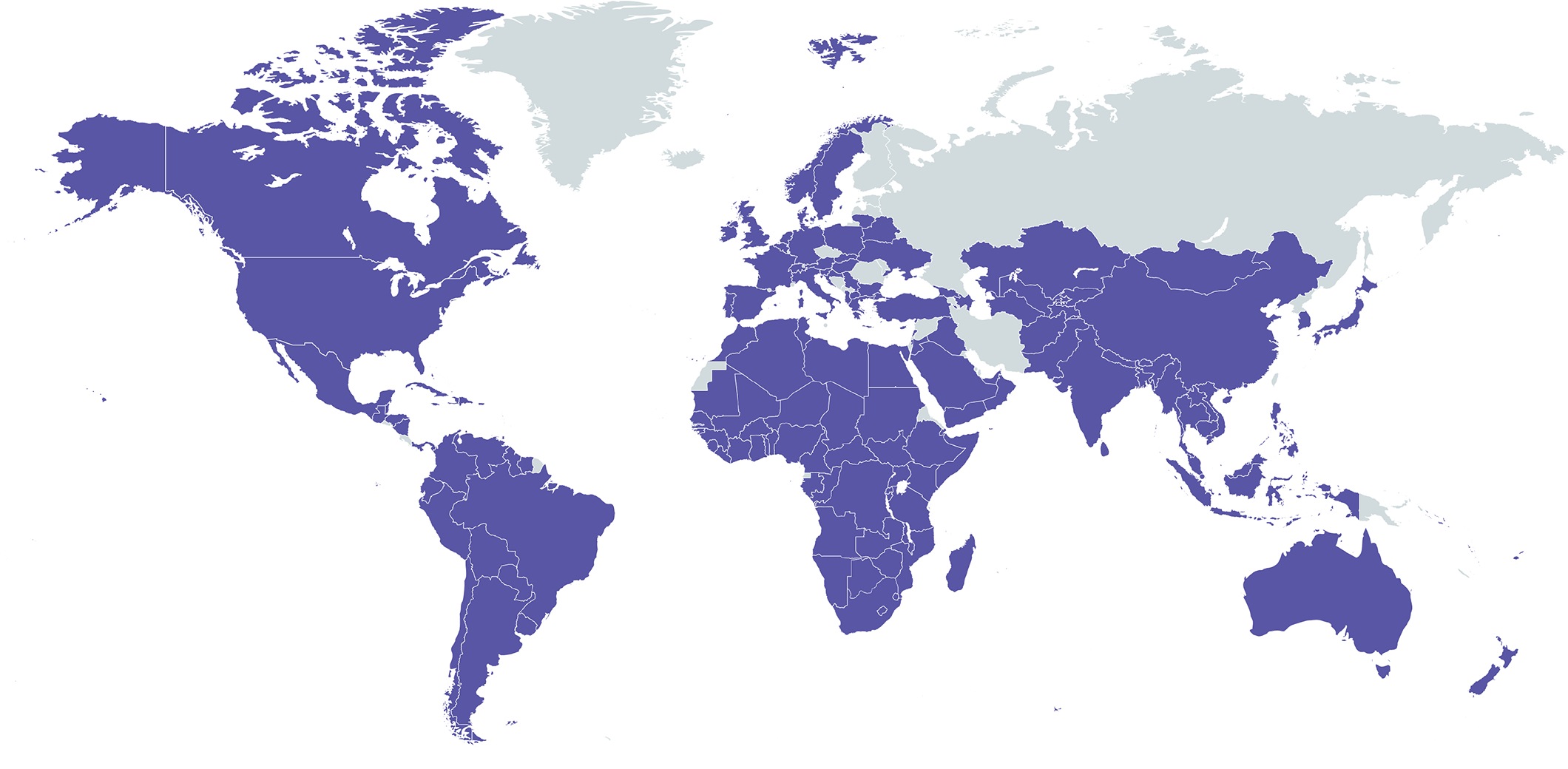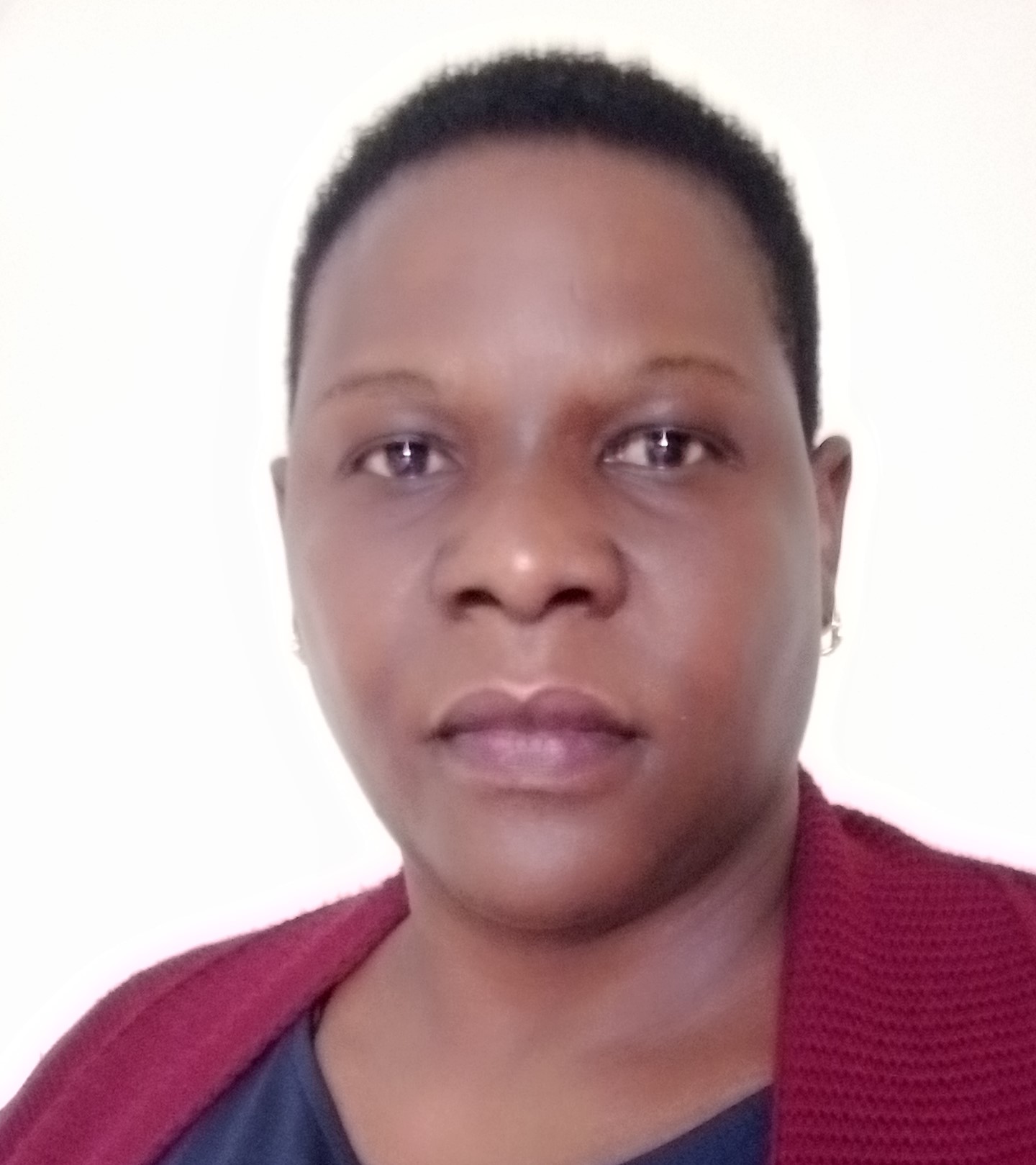Become a member! Receive important updates from the Child Health Task Force.
The Child Health Task Force is currently comprised of more than 8,000 individuals based in over 160 countries from over 900 organizations, including government agencies, NGOs, multilaterals, bilaterals, and academic institutions, as well as individual consultants. The map below shows the countries where Task Force members are based, colored in purple.


Name: Akullu Mirriam
Country: Uganda
Tell us about yourself: Previously with Save the Children International.
My passion is seeing a holistic child intervention that addresses growth and the development for the first 1,000 days of life through to 36 years of growth and development. When this stage of growth and development is handled very well, many health challenges that children face can be solved.
What can we do to advance the 2030 Agenda? Bringing in many more stakeholders on board, especially policymakers, Ministries of Health, Education, Gender, and social development, plus development agencies and individuals who care about children's wellbeing. In other words, we need to increase our advocacy!
Personally, how have you found the Task Force useful to your work? It is quite engaging and its form of knowledge sharing has opened my eyes to do more on improving my approach on handling issues that affect children.

Name: Rabiu Idris Yau
Country: Nigeria
Position and organization: Monitoring and Evaluation Officer, USAID Advancing Nutrition Project
Work focus: I have a passion for improving child health and maternal and child nutrition and provide technical assistance to the state to generate evidence for policy-making advocacy and implementation. I have been working at the community level and seen people suffering from preventable diseases (i.e. anemia in pregnancy) which resulted in low birth weight, stillbirth, and sometimes maternal mortality. Because of this, I have been dedicating my time to provide the necessary technical assistance to people at various levels of program implementation. Such challenges also enhanced my curiosity to learn more on child health by learning some of the components of quality of care and to support the government of Nigeria achieve sustainable development.
What can we do to advance the 2030 Agenda? To provide more learning packages, based on the lessons learned from program implementation across the world.
I learned a lot by attending the Task Force webinars and reading the shared reports and presentations. I have also recommended some of my colleagues to join the network to enhance their knowledge.
Thank you to all who completed the TF Annual Members' Survey. Rabiu Idris Yau was selected as the featured 2022 winner.

Name: Rodgers Gift Benkele
Country: Zambia
Current Position: National Focal Point Person - Paediatrics Emergency Triage Assessment and Treatment (PETAT), Ministry of Health and Principal Lecturer, Arthur Davison College of Paediatrics and Child Health Nursing
Work Focus: I am a Zambian nurse specialist in child health and have 27 years of experience as a clinical nurse, administrator, and educator with a particular emphasis on child care. My current focus of work is to ensure that the PETAT child survival strategy is being implemented in all tertiary hospitals and high volume health facilities that handle children. Currently, the strategy is being fully implemented at Arthur Davison Children’s Hospital in the Copper Belt Province. We have just introduced the program in the Eastern Province by way of a training of trainers that will cascade the strategy and provide training for others.
How have you engaged with the Task Force? The Child Health Task Force has awakened my passion to contribute effectively with the provision of quality child health services. Through the Task Force, I have come to the realization that you have a team out there to help you achieve your goals. The Quality of Care subgroup, for example, has helped to advocate for Paediatric QoC. PETAT is such an important child survival intervention with well outlined standards for effective implementation.
What can we do to advance the 2030 Agenda? We need to ensure that child survival strategies, such as ETAT, are wholly supported. The WHO book - Pocket Book of Hospital Care for Children - Guidelines for the Management of Common Illnesses should be made available. Zambia should be supported to introduce and implement the Pediatric Death Audits and Reviews in Health Facilities.
Thank you to all who completed the TF Annual Members' Survey. Rodgers Gift Benkele was selected as the featured 2021 winner.
